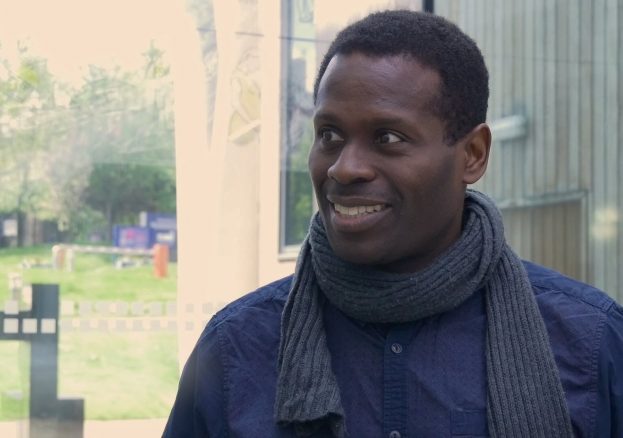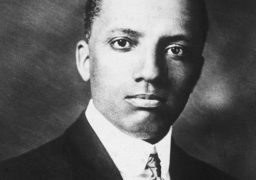

We welcome you to Black History Month Magazine, the leading source for Black History events taking place in Britain during October: ‘Britain’s Black History month.‘The latter phrase is often used to describe the programme of remembrances that the African-American Carter G .Woodson (1875-1950) developed in 1926.
He worked tirelessly as an educator, to ensure that for one week Americans focused on African-American history. By 1976, it had grown to become a nationwide, month-long celebration, observed throughout America. In Britain, the first ‘official’ Black History month celebration took place in 1987, under the co-ordination of Akyaaba Addai-Sebo (1950-) and through the Strategic Policy Unit (GLC).
It should be remembered however, that globally people of African descent had been setting aside a week or a month to commemorate, acknowledge or celebrate African history. This included in Haiti, historians such as Pompee Valentin de Vasey (1781-1820). In Britain, it was John Archer (1863-1932) through the African Progress Union, and later in Birmingham, Bini Brown (1948- ) and the African-Caribbean Self Help Organisation. In the Caribbean and the America’s, the pioneers were the UNIA and Marcus Mosiah Garvey (1887-1940); and in the USA, WB Dubois (1868-1963). Why did they do this? They understood that history is the means by which human beings make sense of the world. History informs our existence and provides lessons to direct our future.
When you strip away a person’s past you remove their ability to express their humanity. A slave has no name, family, culture, language, or history. A slave’s perceptions are circumscribed by their master’s reality. Even when the chains of slavery are broken, slaves remain in the shadow of ignorance. So to, modern culture as evinced by the popularity of the ‘N’ word, the jibes, insults and conspiracies typed in the darkened recesses of chat rooms by social media bloggers, and alluded to as truisms by politicians, all hearken to a Eurocentric hegemony. And through this ethnic chauvinism an idea grows that European history and culture was mono-ethnically white. Being so misaligned, their perspective is that any other interpretation of world affairs is ‘political correctness gone wrong,’ or revisionism. But these naysayers actually cut characters from the book of life and destroy them, and take events imbedded in the record of time and re-label them as fiction. It means the history books are missing pages. So, we cannot understand the First and Second World Wars so long as we fail to acknowledge the sacrifice of the Commonwealth, including the sons and daughters of Africa, the Caribbean and those of African descent in Britain. And we will not remember those conflicts with clarity so long as we exclude from this narrative, people of colour from the Americas, Asia and Oceania who fought and died. This rationale equally applies when their contributions are airbrushed out in blockbuster films.
To tell a story properly requires inclusion. We cannot talk with impunity about Thomas Edison being the creator of the light bulb, without mentioning that Lewis Latimer designed the filament that made the light bulb work! When we talk of William Wilberforce, Granville Sharpe, Thomas Clarkson and Abraham Lincoln ‘freeing the slaves;’ the true story of this ‘emancipation’ should not be told without the Sons of Africa, Olaudah Equiano, Ignatius Sancho, Ottobah Cugoano, Robert Wedderburn, Samuel Ajayi Crowther, all of whom resided on a permanent or temporary basis in Britain. Nor can these events be understood without analysing the revolutions that raged across the world led by Africans in Haiti and the Caribbean; or the sacrifice of Martin Delaney, Harriet Tubman, Sojourner Truth, Frederick Douglass and the 180,000 African-Americans who fought in the American Civil War. In praising Napoleon as a military mastermind, one must somehow name Toussaint L’Overture and Jean Jacques Dessalines as military geniuses, — since they defeated him! In hailing Florence Nightingale one is forced to hail Mary Seacole. In speaking of people living in Tudor England we may think of Henry VIII and Elizabeth I, but we should know that Henrie Anthonie Jetto and Mary Fillis of Morisco: the Blackamoores, Shakespeare’s other countrymen lived there too. Everywhere we turn, to tell human history, we have to include. To crudely exclude the African or anyone else from human history is to be a partner in a crime and the accomplice in a felony.
Onyeka Nubia is a British writer, law lecturer and historian. His books document the lives of Black Britons and his third novel, called The Phoenix, has been awarded the 2009 African Achievers award for Communication and Media [3] for the psychological portrayal of the Black British experience.
